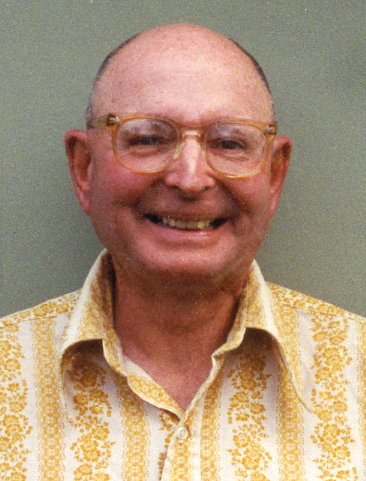Million-Dollar Bequest Supports Science Educators

02/08/2010
Retired biology teacher Michael J. O’Reilly ’58, of Chaumont, N.Y., has made a bequest of $1.24 million — the second largest individual gift in the College’s history — to his alma mater, SUNY Cortland, for the creation of a science education scholarship.
“I loved my time in Cortland and my career as a science teacher,” said O’Reilly, who taught for 33 years, the last 28 of them in Spring Valley, N.Y., as part of the East Ramapo Central School District. “Education still excites me. I want to help talented SUNY Cortland students become junior high and senior high school science teachers. My hope is that they will inspire our nation’s children to pursue science as a field of study and a career.”
His bequest, which establishes the Michael J. O’Reilly ’58 Scholarship in Science Teacher Education, targets talented undergraduate and graduate students with financial need to enter a junior high or senior high school teaching career.
“Michael's scholarship, together with our multimillion-dollar renovations that will provide first rate science facilities on our campus, will greatly help SUNY Cortland attract support and educate the science teachers of tomorrow,” said Raymond Franco, vice president for institutional advancement at SUNY Cortland.
A native of Watertown, N.Y., O’Reilly grew up the third of five children in a family of modest income but strong education and work ethic values. His siblings, including his older brother, Lawrence, a SUNY Cortland graduate and later a Health Department faculty member in the 1960s, went on to distinguished teaching careers, too.
O’Reilly worked for two years after high school and pondered an engineering career like his father, who designed state highways.
“I didn’t have a scholarship so I decided to take my first two years at a SUNY school,” explained O’Reilly, attending Cortland when it was tuition-free. “Once I was there, I decided to stay and complete my specialization in science education. My primary area was elementary education.”
Reilly cited a number of Cortland faculty who made an indelible impression on his academic and professional life. He fondly recalled the kindly scholarship of Distinguished Professor Emeritus of English Van Burd and how Professor Emerita Margaret T. Halligan brought history to life with her lessons. O’Reilly would later emulate Professor Emeritus of Science R. Dean Schick, who created hallway science models to engage the interest of his students. Another science faculty member, Walter Thurber, made the vital contacts that led O’Reilly to his first job as a junior high science teacher in the Fayetteville-Manlius School District outside Syracuse, N.Y.
“Those were people who had an influence on me,” he said. “They gave me courage. I had some very understanding people at Cortland. I was starting late as a college student. I had been on the honor roll in high school but had never been a standout. I made the Dean’s List that first semester at Cortland and from that point on all the way through college.
O’Reilly credits his Cortland education with giving him a solid foundation for his teaching career, at the same time expanding his horizons with a new-found appreciation for classical music and reinforcing his ability to address large audiences as a columnist for the student newspaper.
His lessons were not limited to the campus. O’Reilly worked 35 hours a week at Sarvay Shoes, a time-honored downtown Cortland business, to pay for his college education.
“The entire Sarvay family was wonderful,” recalled O’Reilly. “Mr. Sarvay, the elder, was a special person. Vagrants with worn-out shoes would periodically come into the store throughout the year. When one did, he would motion to me and we would go downstairs and try to find a pair of shoes for the person. He always found something the guy could wear and the person didn’t have to ask for anything. Mr. Sarvay just jumped on the situation. Of course, there was no charge.”
O’Reilly earned both his bachelor’s degree in elementary education in 1958 as well as his master’s degree in education in 1963 from SUNY Cortland. He later received a fellowship to attend the University of Pennsylvania for a master’s degree in education.
“I taught a lot of different areas of biology — ecology, life science, general science,” recounted O’Reilly of his 33-year career. “I started off teaching honors. Then some of other staff wanted to try honors, so I would move to the other levels. I went to the regents and, for the last 15 years, I had non-regents.”
Teaching that particular group, explained O’Reilly, did not excite the staff members who viewed it as a “kind of duty you had to take care of every few years.” O’Reilly changed that perception.
“I stayed with the program and kind of built it up,” he admitted. “I had a good time with that. Those kids really are, in some ways, the salt of the earth because they wear everything on their sleeves. You knew right where you stood with them every minute.”
O’Reilly also taught English as a second language for immigrant children for a couple of years.
“A lot of them were minority students who were in special housing arrangements,” he said. “They attended and lived in Lakeside Home outside Spring Valley. They were from broken homes in New York and had come looking for a nicer atmosphere in which to learn. Of our approximately 1,000 students, we had 280 who were from homes of this nature.”
O’Reilly, recalling his own experiences as a Cortland undergraduate and his decades as a Spring Valley teacher, never forgot what it meant to be a good student.
“Going to school is a hard job,” he concluded. “If you’re working on papers and spending hours in the library, if you’re a serious student, it’s hard work.”
His scholarship will make a college education a reality for many hard-working, future science teachers pursuing their bachelor’s degrees at SUNY Cortland in the years ahead.

